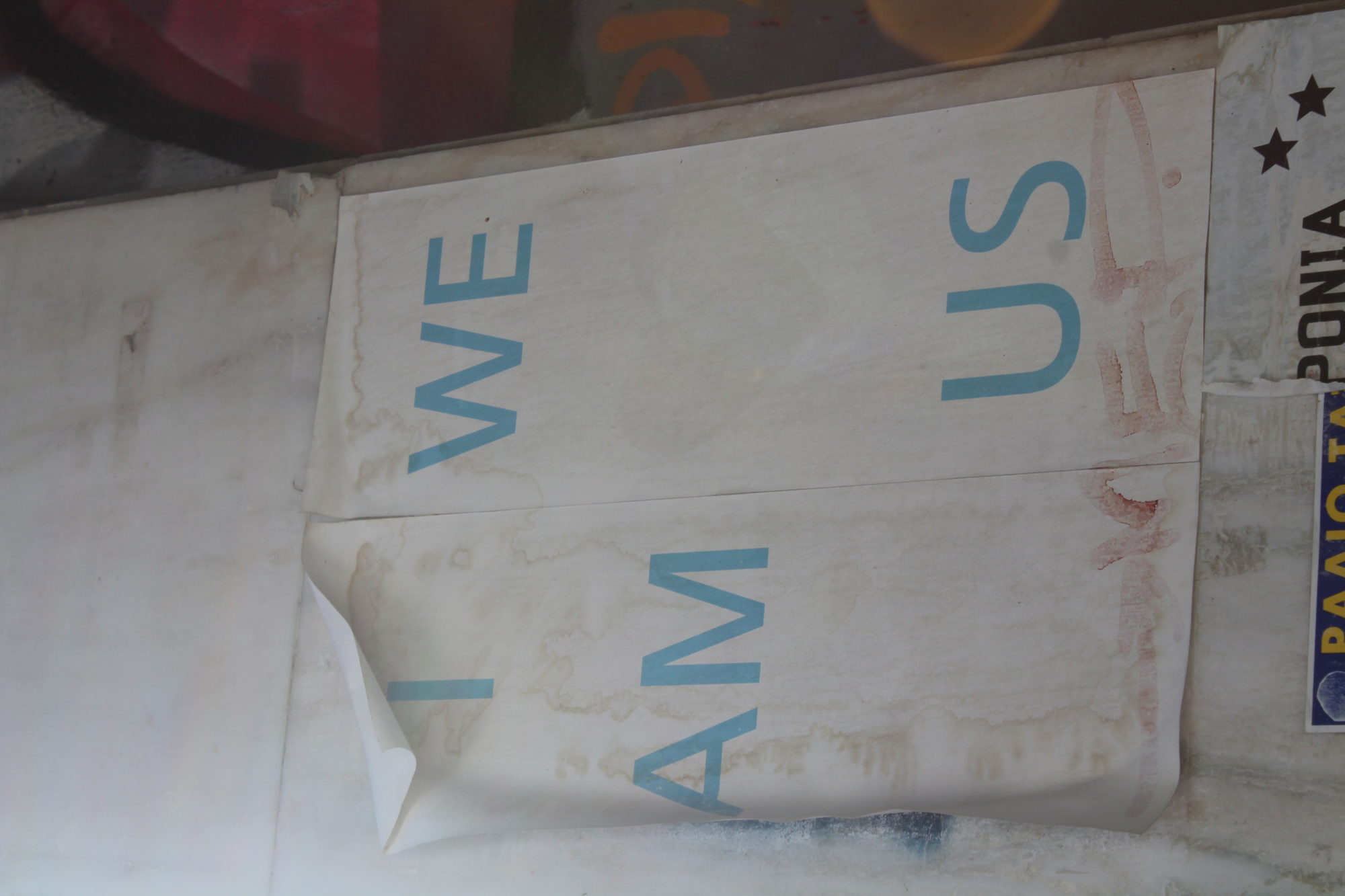Against Institutionalisation
We are in a situation in which the disembodiment of the I-Thou relationship has led to a mathematization, an algorithmization, which supposedly is experienced. It has seemed to me during the last couple of years that the main service I still can render is to make people accept that we live in such a world. Face it, don’t try to humanize the hospital or the school, but always ask, What can I do, at this very moment, in the unique hic et nunc, here and now, in which I am? What can I do to get out of this world of needs-satisfaction … and feel free to hear, to sense, to intuit what the other wants from me, would be able to imagine, expects with a sense of surprise, from me at this moment? I think many people have very reasonably withdrawn from trying to improve the social agencies and organizations for which only twenty years they felt responsible. They know that all they can do is to try, by negative criteria, to diminish the impact and the hold of this idea on their milieu, in order to be increasingly free to behave an-archically as human beings who do not act for the sake of the city, but because they have received the ability to respond as a gift from the other.
(Ivan Illich in conversation with David Cayley, “Across the Watershed”) [1]
There is no life in the city without the institution. It is interesting to note here how Illich, one of the greatest critics of the modern institution, suggests that the an-archic is in opposition to the city, or, more precisely, it belongs to “beings who do not act for the sake of the city”. Is the institution then ultimately tied to the metropolis? Are there no institutions in the countryside? The human, and the relation to the other, is here opposed to the institution: you cannot humanise an institution, you can only behave against it, in the name of the present, in relation to the other. The institution, despite being composed of people, is, for Illich, ultimately inhuman, and operates against the present. We are all spiritual ruralists, our heart in the country. Is it any wonder we dream of escape at least once a day.
What are we to make of such a provocation, when we are not even sure today which institutions we are members of? We are in a miasma of belonging, as individuals, an endless stream of numbers, memberships, passwords; as workers or students, participants in innumerous institutions that do not even necessarily announce themselves as such. We constantly rely upon, or are coerced into participating in, institutions – yes, the major ones: schooling, health, but the shadow ones too, the ones that present themselves as free choices – politics, economics, marriage. And beneath them, language, ideology, all technologies, even the alphabet itself (as Illich, along with Barry Sanders, will elsewhere note with reference to George Orwell: “We see Newspeak as a cipher for something that is now called ‘interpersonal communication,’ for the belief that the terms by which we describe the operations of computers are fit to tell what is going on between you and me. By Newspeak we mean one particular way of thinking and speaking about language – an approach or an attitude that treats language as a system and a code”[2]).
We are all encoded. We are code. We are all institutionalised. We are the institution. Older traditions, such as the church, have largely passed into obsolescence. This is not to suggest that people are no longer religious, indeed we are all religious one way or another, but rather that the institutional form of religion – its churches and cathedrals, for example – are no longer especially needed given the bounds created by virtual forms of belonging. It is quaint to belong to a “parish” when internet space, with all its surveillance, policing and data mining, exists.
It is interesting too to note that even in the late 1990s, when these interviews with Cayley took place, that Illich talks of the “mathematization” and the “algorithmization” of things and the “disembodiment” of the relationship between the I and the Thou. It goes without saying that these tendencies have reached levels today that I’m sure even Illich could not have predicted. The institution necessarily exists beyond the present, and against it. It exists against surprise and against unpredictability. While institutions are composed of people, gradually people start to become bearers of the institution as well, thus reproducing institutional values in human form. Most institutions start out with identifiable and often worthy aims and values. Many institutions become ossified and even start to work against their core principles. This tendency is summed up in Illich’s core phrase corruptio optimi quae est pessima – the corruption of the best is the worst.
Perhaps we are familiar with this idea by now. Seen from the standpoint of the worst, schooling is not about learning, but rather about policing and training children for the economy. Medicine does not preserve health but encourages dependency on pills and the institution for profit and control. The art institution does not celebrate creativity, but also rewards adherence to a narrow range of ideological keywords and faddish slogans.
How to recognise institutionalisation? How to both live within our institutionalisation – vague as it sometimes is – and go beyond it, to be free to live an-archically? In setting up new institutions, or resurrecting old forms, can we resist the temptation to embody the institution? If the present is a form of resistance to ossification, then the only way to escape inevitable self-bureaucratisation, what we could also call becoming-homogenous, becoming-automated, as opposed to remaining alive, different, open to risk and to surprise, and to playing a role in relation to the other, is to avoid ever setting out rules. This is almost impossible to avoid! Might we come to be conscious of the antagonism between risk and routine, and dwell somewhere in-between together?
One distinction we could make is the difference between ritual and rules: ritual is the self-conscious implementation of ceremony in a bid to elevate or to make sacred a set period of time in the name of recognising or marking something. Rules, such as those we encounter every day in a bureaucratic manner are profane, often incomprehensible and decided by someone else, impersonally, anonymously. This is not to say, of course, that all rules don’t “make sense”: of course, they usually do, even if their meaning is not initially clear to us at a particular moment. But rituals make sense in the moment because of their subjective aspect and the decision to participate in them – we are obeying, apart from anything else, ourselves. And our autonomy shared is collective joy: the moment in communion that is against the atomisation or “serialisation” that Sartre describes in his later work, in particular the Critique of Dialectical Reason (the idea that we are like serial numbers, and that the other appears to us as a number in a queue, as an obstacle, rather than as a unique being with infinite complexity, as we are all, seen from a different angle).
To be in this ambiguous melange of institutions, to be an institutionalised being, subsumed by numbers, to be a bearer of the laws of others, is to forget about other possibilities of being. To recall who we are in the moment, the I-Thou, it is necessary to practice two modes of being that Illich names “conviviality” and “austerity”. Illich defines the former as “the result of social arrangements that guarantee for each member the most ample and free access to the tools of the community and limit this freedom only in favour of another member’s equal freedom”.[3] In other words, a society “in which modern technologies serve politically interrelated individuals rather than managers”.[4] Illich develops this idea in relation to the beautiful term eutrapelia (graceful playfulness). This relates, and Illich takes this word from Thomas Aquinas, to the older idea of “austerity” as the foundation of friendship, which is a mode of being, a virtue, which excludes all enjoyments which are “distracting from or destructive of personal relatedness”.[5]
To not be
distracted, in the present, in the name of gracefully playing individuals in
mutual up-building community: Well,
these moments may be rare, but they are not impossible, and they are free. Whenever we are in
relation to one another, and not a
becoming-machine, whenever we act spontaneously in the present, we are
against the algorithm, and we are against the slow death and ossification of
the institution. We are vivacious.
[1] David Cayley & Ivan Illich, The Rivers North of the Future: The Testament of Ivan Illich, as told to David Cayley (Toronto: House of Anansi Press, 2005), pp. 222-223.
[2] Ivan Illich & Barry Sanders, ABC: The Alphabetization of the Popular Mind (London, New York: Marion Boyers, 1988), p. 112.
[3] Ivan Illich, Tools for Conviviality (London: Calder & Boyers, 1973), p. 12.
[4] Ibid., p. xii.
[5] Ibid., p. xiii.


